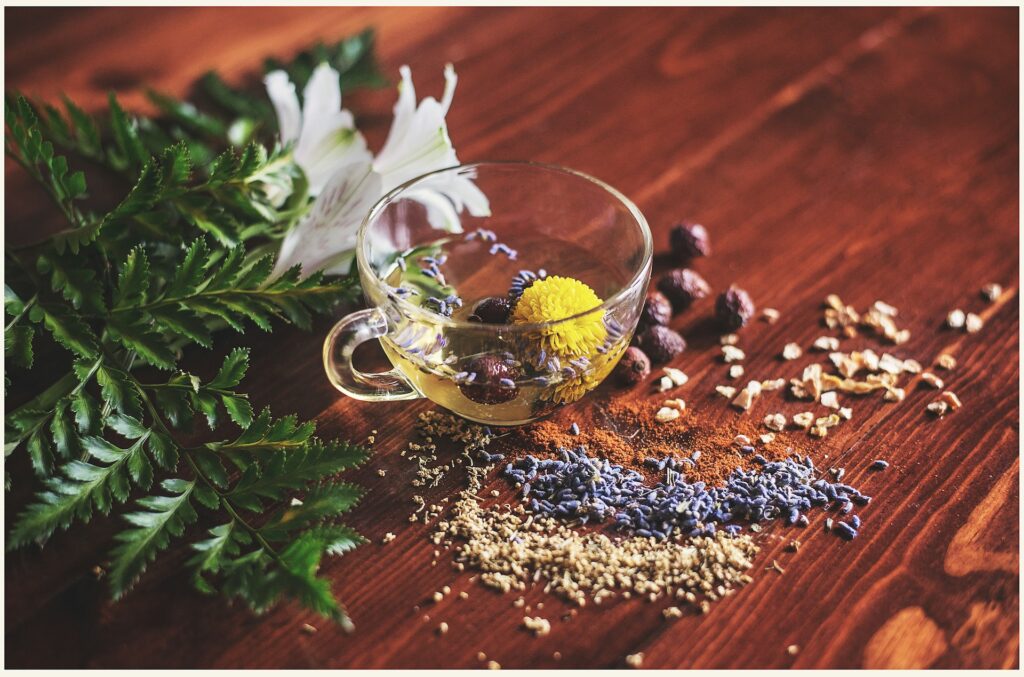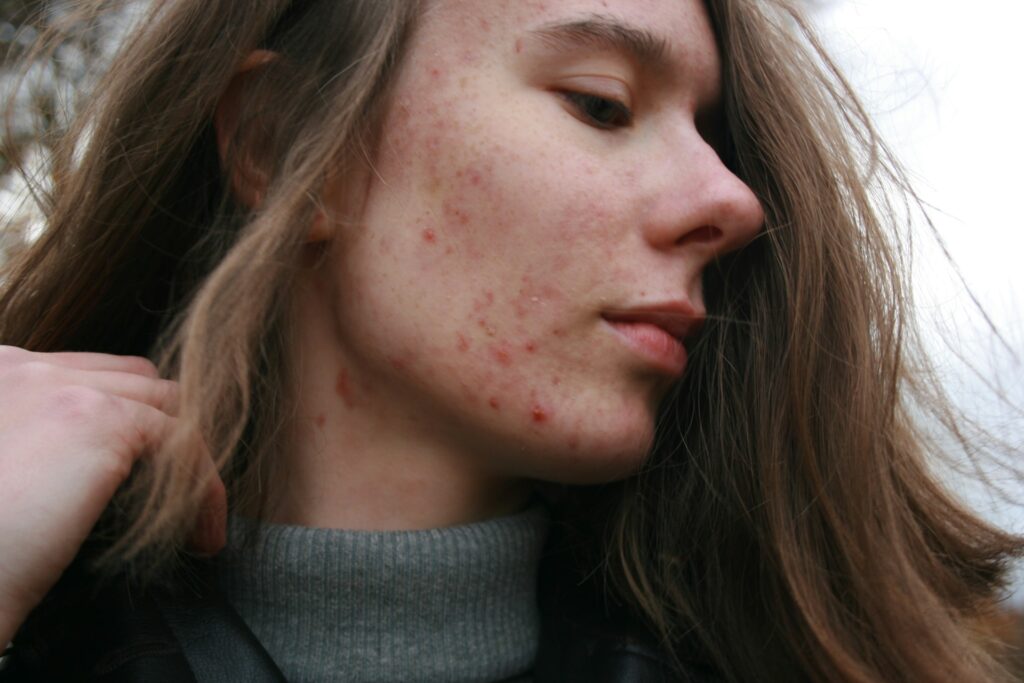Introduction
Millions of people in the world are suffering from face acne. Various kinds of treatments are there for curing this skin disorder. Surgical treatments are controlled and are recommended in exceptional cases.The problem is that both topical and oral treatments can be very heavy for the body to support and can even create more problems than they are intended to solve. This is why more and more people are wondering how to cure acne naturally. In this article, we’ll explore what acne is, the different types of acne, and some of the most effective natural home remedies for treating face acne.
What is Acne?
Acne is a skin condition that occurs when hair follicles become clogged with oil and dead skin cells. This leads to the formation of pimples, blackheads, whiteheads, and sometimes cysts. Acne generally appears on the face, forehead, chest, upper back, and shoulders. It can be caused by various factors, including hormonal changes, genetics, stress, lifestyle and certain medications.
Types of Acne
- Comedones : This is one of the most common types of acne, caused by dirt and clogged skin pores. Comedones can be open (blackheads), when the pore is open and exposed to air, or closed (whiteheads), when the pore is white.
- Papules: Papules are small nodules that appear on the skin due to inflammation of the pores. They are usually red and may be painful to the touch. Papules do not contain pus.
- Pustules: Pustules are similar to papules but have a more prominent inflamed center filled with pus. They often have a white or yellow head and can vary in size.
- Subcutaneous pimples:These are large, deep growths that develop under the skin. They can be painful and leave visible marks, especially if squeezed or popped.
- Mite acne:They look like papules (pimples) covered with gray scales. Sometimes instead of them, blisters with transparent or purulent contents are found on the skin, surrounded by a red inflammatory rim or itchy inflamed areas of the skin.
- Nodules: Large, painful lumps beneath the skin surface, caused by severe inflammation and infection.
- Cysts: Deep, painful, pus-filled lumps that can cause scarring.
Natural Home Remedies for Face Acne
While professional medical treatment is often necessary for severe acne, many people find relief from mild to moderate acne through natural home remedies. Here are some effective options:
Tea Tree Oil
How it Works: Tea tree oil contains terpinen-4-ol, which gives it strong antimicrobial properties. This compound helps to kill acne-causing bacteria (Propionibacterium acnes) on the skin. Additionally, its anti-inflammatory properties can reduce the redness and swelling associated with acne.
Usage: Dilute with a carrier oil (like coconut oil) in a 1:10 ratio. Apply to affected areas with a cotton swab once or twice daily.
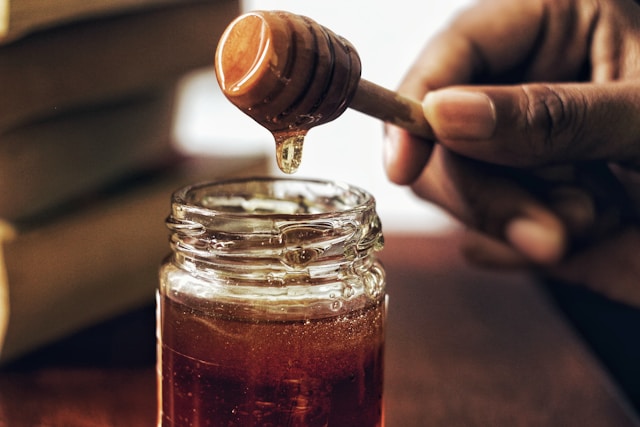
Honey and Cinnamon Mask
How it Works: Honey has natural antibacterial and anti-inflammatory properties, which help to reduce acne symptoms and prevent future breakouts. Cinnamon contains cinnamaldehyde, an organic compound with antibacterial and anti-inflammatory effects, enhancing honey’s acne-fighting abilities.
Usage: Mix 2 tablespoons of honey with 1 teaspoon of cinnamon to form a paste. Apply to the face, after 10 to15 minutes,rinse off with warm water.
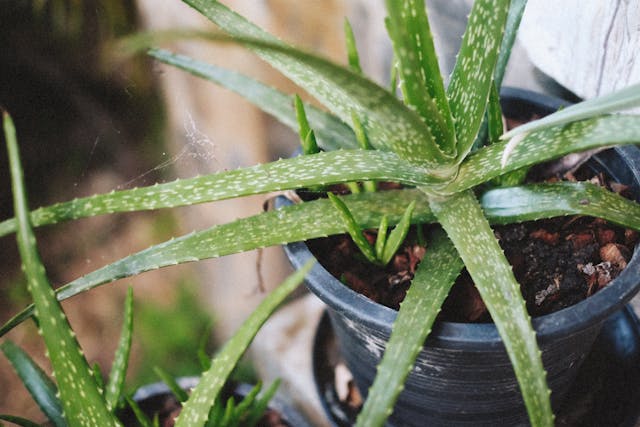
Aloe Vera
How it Works: Aloe vera contains salicylic acid and sulfur, both of which are used extensively in the treatment of acne. Salicylic acid helps to unclog pores, while sulfur helps to dry out the surface of the skin to absorb excess oil that may contribute to acne.
Usage: Apply pure aloe vera gel directly to affected areas twice daily.
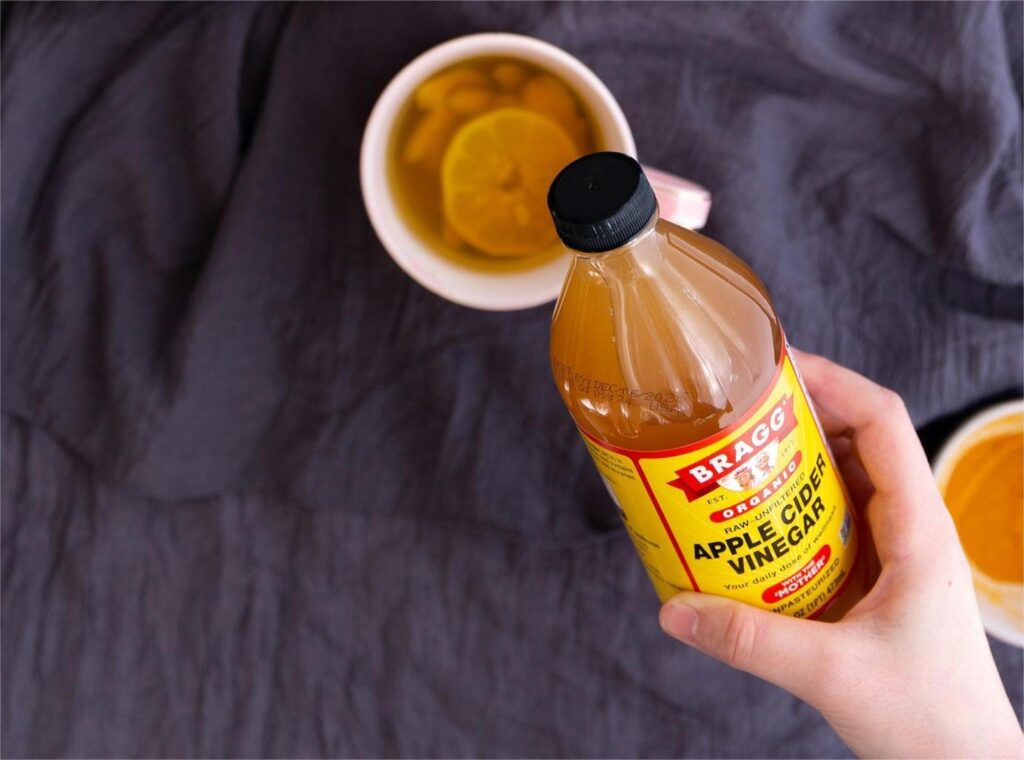
Apple Cider Vinegar
How it Works: It is a very ancient remedy because it is easy to find, simple to put into practice, and above all economical. It is mainly used for its anti-inflammatory and antiseptic properties. Apart from being good for hair care, it is also good for skin disorders. It is rich in antioxidants , which your skin needs so much not only to fight the ongoing infection but also to become healthy and elastic again.
Usage: Mix 1 part apple cider vinegar with 3 parts water. Apply gently to the skin using a cotton ball, leave on for 5-20 seconds, then rinse with water.
Green Tea
How it Works: Green tea is rich in catechins, which are natural antioxidants that can help reduce inflammation and decrease sebum production. The polyphenols in green tea also help to fight against bacterial growth, thus preventing acne.
Usage: Brew green tea, let it cool, and use a cotton ball to apply it to the skin. Alternatively, use the cooled tea bag as a compress. You can also look for skincare products containing green tea extract
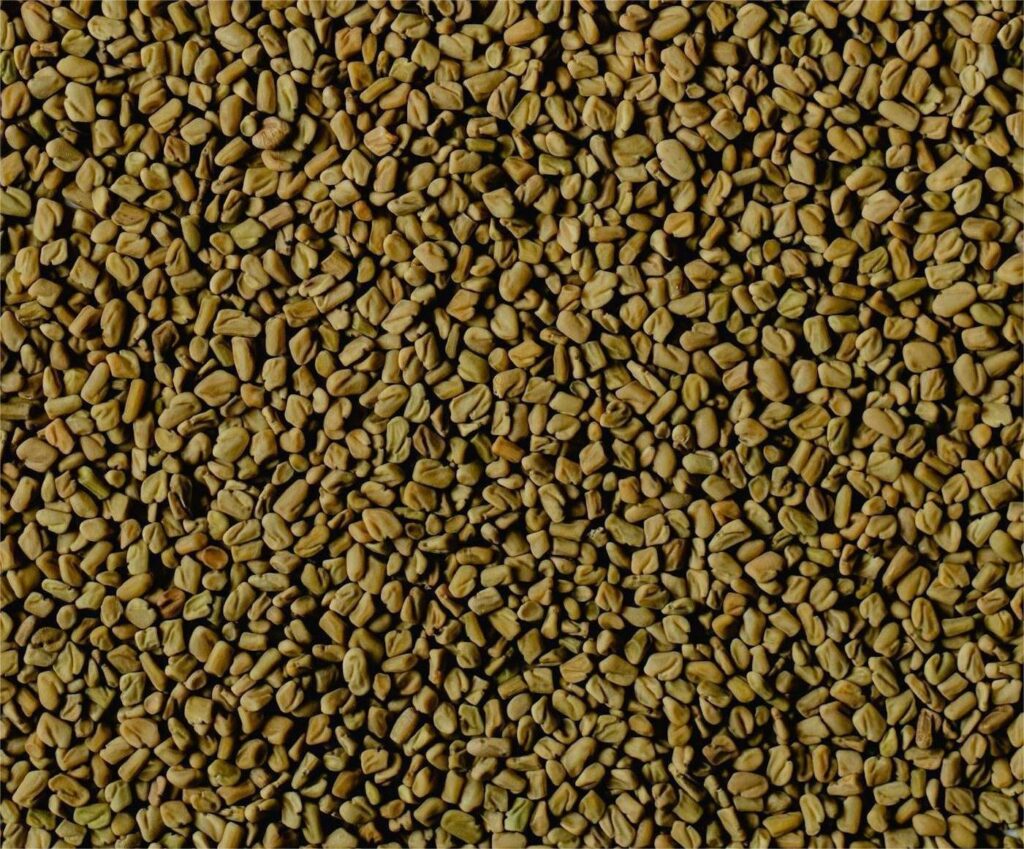
Fenugreek
How it Works: Fenugreek has anti-inflammatory and antibacterial properties. Create a paste by grinding fenugreek leaves with a little water.
Usage: Apply this paste to the affected areas, leave it on for 10-15 minutes, and then rinse off with water.
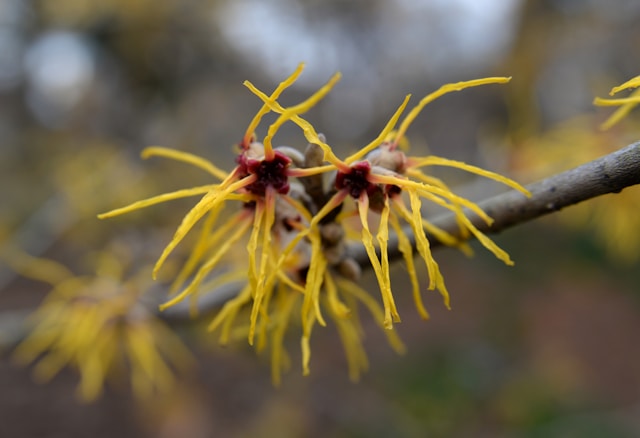
Witch Hazel
How it Works: Witch hazel is valued for its strong anti-inflammatory, astringent, vasoconstrictor and healing properties. This plant works effectively on acne-prone skin thanks to its ability to reduce inflammation and speed up the healing process of lesions. Witch hazel is particularly useful for closing enlarged pores and keeping the skin toned, creating a protective barrier against bacteria and environmental factors that can contribute to the development of face acne.
Usage: Apply witch hazel directly to the skin using a cotton pad, especially after cleansing your face.
Lemon Juice
How it Works: Lemon juice contains citric acid, which can help exfoliate the skin, remove dead skin cells, and prevent clogged pores. Its antibacterial properties can help to reduce acne-causing bacteria, while its natural astringent qualities can reduce excess oil.
Usage: Dilute with water to prevent irritation and apply to the skin with a cotton ball. Use sparingly and avoid sun exposure after application, as it can increase photosensitivity.
Turmeric
How it Works: Turmeric carries anti-inflammatory, antimicrobial, and antioxidant properties. These properties may be useful for treating face acne, alopecia, atopic dermatitis, oral lichen planus, pruritus, and psoriasis.The ingredients for this acne medication are available at spice markets and ethnic food stores.
Usage: Mix 1/2 cup of turmeric powder and 2 teaspoons each of turmeric powder, sandalwood powder, and almond oil. Mix all ingredients with enough water to make a paste. Apply to your face and leave on for 5-10 minutes. Rub gently to remove all the paste. Rinse with water.
Zinc Supplements
How it Works: Zinc is an essential mineral that helps reduce inflammation and suppress bacterial growth. It also plays a role in regulating sebaceous glands, reducing oil production that can contribute to acne.
Usage: Take zinc supplements as directed, but consult with a healthcare provider to determine the appropriate dosage and to ensure it’s safe for you.
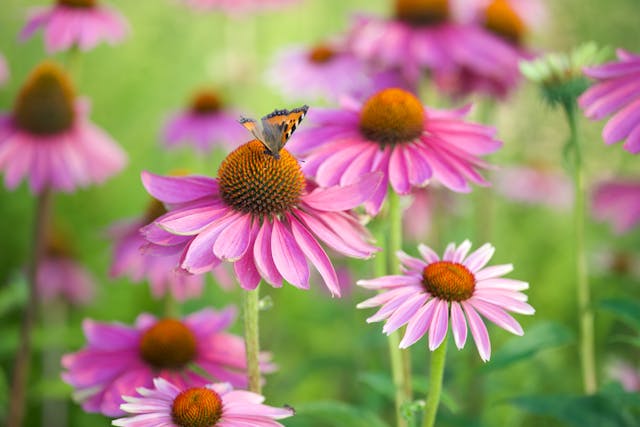
Echinacea
How it Works: Echinacea is known to speed up the healing process, so it can help you control acne. It contains compounds that help destroy viruses and bacteria, including P acnes. This herb is believed to improve the immune system and reduce inflammation to fight or prevent infections that can cause face acne.
Usage: You can use echinacea as a face wash or apply a few drops of the tea to the acne area with a soft cloth or cotton ball. Echinacea is also available as an over-the-counter cream or supplement.
Coconut oil
How it Works: Coconut oil can also be used as a natural remedy to treat face acne. This is because it contains anti-inflammatory and antibacterial compounds. These properties can help you kill acne-causing bacteria and reduce redness and swelling due to this skin problem. Coconut oil can also provide a soothing and moisturizing effect on the skin. Thus, it can speed up the healing of open acne wounds.
Usage: Apply a small amount of virgin coconut oil to the affected areas before bedtime and leave it on overnight. In the morning rinsing with warm water is very helpful
Oatmeal Mask
How it Works: Oatmeal has anti-inflammatory properties and can help soothe irritated skin. It also contains saponins, which are natural cleansers that can remove dirt and oil from the pores, reducing the risk of acne.
Usage: Cook plain oatmeal, let it cool, and apply it to the skin. Let it stay on the face for 10-15 minutes and rinse off with warm water.
Jojoba Oil
How it Works: Jojoba oil is a natural wax substance extracted from the seeds of the jojoba bush. This waxy substance can help you deal with acne by repairing damaged skin, speeding up the healing of wounds, including lesions due to this skin problem. It also has anti-inflammatory properties that can reduce swelling and redness, and its antimicrobial properties can prevent bacterial growth.
Usage: Apply a small amount of jojoba oil to the skin or mix it with your moisturizer.
Baking Soda
How it Works: Baking soda acts as an exfoliant, helping to remove dead skin cells and unclog pores. Its antibacterial properties can also help to kill face acne-causing bacteria, though it should be used cautiously as it can be abrasive and may irritate sensitive skin.
Usage: Mix baking soda with water to form a paste and apply to the skin. Use sparingly, as it can be abrasive and may irritate sensitive skin.
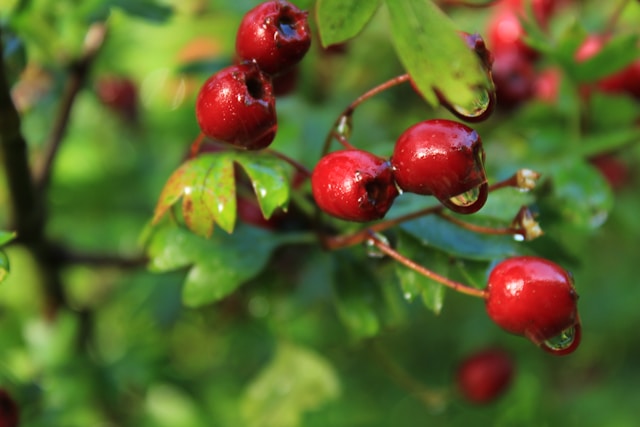
Hawthorn
How it works: Hawthorn has anti-inflammatory and antioxidant properties. It helps to improve blood circulation and reduces inflammation, which can help reduce the appearance of acne. This plant contains a phytocomplex rich in flavonoids, procyanidins, catechins, phenolic acids, amines and triterpenes, substances that help reduce skin inflammation.
Usage: Hawthorn can be taken as a supplement or consumed as a tea. Follow the dosage instructions on the supplement packaging or steep hawthorn berries in boiling water for 10-15 minutes to make tea. Drink 1-2 cups daily.
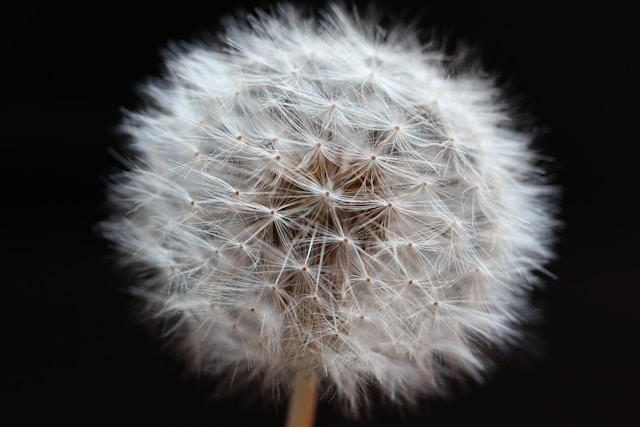
Dandelion
How it works: Dandelion is an extraordinary plant, not only for its beauty but also for its beneficial properties, especially in the treatment of acne. Rich in sesquiterpene lactones, phenylpropanoids, phytosterols, and other bioactive substances, Dandelion offers a diuretic and depurative action. This ability to stimulate kidney activity helps eliminate toxins from the body, a key factor in the appearance of acne.
Usage: Dandelion can be consumed as a tea or taken as a supplement. To make dandelion tea, steep dried dandelion root or leaves in boiling water for 5-10 minutes. Drink 1-2 cups daily. Follow supplement dosage instructions if taking capsules or tablets.
Live Lactic Bacteria (Probiotics)
How it works: Probiotics help to balance the gut microbiome, which can have a positive effect on skin health. A healthy gut can reduce inflammation and prevent acne breakouts. Probiotics also help strengthen the skin barrier and protect against harmful bacteria.
Usage: Take a daily probiotic supplement according to the package instructions. You can also consume probiotic-rich foods such as yogurt, kefir, sauerkraut, and kimchi.
Dietary Changes
How it Works: Diet plays a significant role in skin health. Certain foods, like those high in sugar and dairy, can trigger acne by increasing insulin levels and hormone fluctuations. On the other hand, foods rich in antioxidants, omega-3 fatty acids, and vitamins can help reduce inflammation and promote healthy skin.
Recommendations: Increase your intake of fruits, vegetables, and omega-3 fatty acids. Reduce consumption of dairy, sugar, and processed foods. Foods rich in vitamins A, D, and E, and zinc can be particularly beneficial.
Omega-3 Supplements
How it works: Omega-3 fatty acids, found in fish oil and flaxseed oil, help to reduce inflammation in the body. They can help manage acne by decreasing inflammatory responses in the skin and balancing the production of skin oils.
Usage: Take omega-3 supplements according to the package instructions. Generally, a dosage of 250-500 mg of combined EPA and DHA per day is recommended. Consult with a healthcare provider for personalized advice
Conclusion
Acne is a very challenging condition to handle. Many kinds of Natural home remedies for acne can offer delicate and effective ways to manage and reduce this pathetic skin problem. However, it’s essential to be patient and consistent, as natural remedies may take time to show results. You should Be very careful to choose a method or product before applying. For never ending or severe acne, consulting with a certified dermatologist is recommended for suggestions of additional treatment options.
